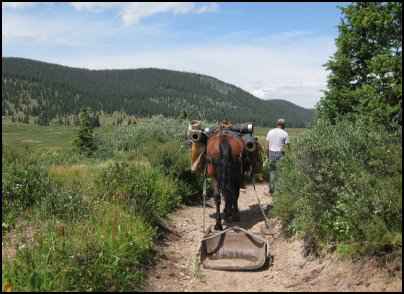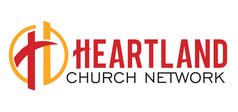|
Before I shift our focus away from the Parable of the Ten Virgins in Matthew 25 and the principle of personal responsibility, I need to point out that Learned Helplessness exists; it is alive and well in our culture; we need to understand the impact it is having. Although I was aware of the general concept, it wasn’t until I read Henry Cloud’s book Boundaries for Leaders that I actually came to grips with the individual AND cultural prominence and devastating impact of Learned Helplessness. As I read the book, I paused after reading Chapter 6 to reflect on my visits to impoverished West Africa. As Cloud described the impact Learned Helplessness has upon individuals and businesses, I thought, “I’ve seen it impact a whole nation: Niger!” Our daughter, Emily, was serving there as a missionary among the Fulani—a seminomadic people group who call themselves the “Bringers of Islam.” Having grown up in a semi-arid rural region of the US, I was able to relate in many ways to the agrarian life of the Fulani. However, I was not prepared for a world that looked just like the one described in Bible times. I had read in Numbers about millstones and mortars being used by the Israelites as they ground the manna. I didn’t see a single millstone—a little more high-tech—but I did see a lot of mortars being used to pound their millet. The “Why don’t they ______” questions just kept pouring into my mind. I noticed that there wasn’t a single inch (let alone kilometer) of railroad or interstate in the whole nation. There was only one bridge across the Niger River, and most of the roads that do exist are so rough that sometimes it’s better to drive on the side of the road. I acknowledge that Niger is a nation with limited natural resources, and I admit that I grew up in a huge energy-producing state—Wyoming with its oil, natural gas, and coal. But I also know that to a Wyoming native, water rights are more valuable than mineral rights. You can’t live long without water and neither can your cattle or crops. So what grabbed my attention the most was the fact that I did not see a single dam (called a stock pond or tank in some regions of the US) of any kind. I recalled that when my parents bought part of a huge ranch that was being broken up and sold, the first thing we had to do was to build two dams—one for the east canyon pasture and one for the west canyon pasture—we were fortunate that the canyon already had a dam. Without water for the cattle, those grazing areas would be worthless. I also remember hearing my grandfather talk about working on a crew that built some of the early highways in the Black Hills. He talked about using a horse-drawn slip—talk about SLOW HARD WORK! (If you don’t know what a slip is you can hit this link: Horse Power). I began to think about how all of the early dams in Wyoming were built using a slip, and I asked myself, Why haven’t the people of Niger built dams? The dams would provide water for themselves, their livestock, their crops, and minimized flash flooding. Yes, it is SLOW HARD WORK, but water is LIFE! All of these thoughts flooded through my mind as I pondered the concept of Learned Helplessness, how it had consumed an entire nation, and the devastating human toll that it was taking. I wondered, “How do you begin to help people whose lives are so destitute?” I’ll address that question in the following articles, but for today I want you to understand what Learned Helplessness is, and convince you to see that it does exist in our culture. In fact, I would suggest that it has a direct impact on how you help someone acknowledge their need to accept personal responsibility and in some ways help them accept the Gospel that provides eternal life. As I continued to read Boundaries for Leaders, my thoughts shifted from Niger to the small struggling churches in our network--churches where people have lost hope and moved into a survival or fortress mindset. Cloud describes Learned Helplessness this way: A positive and optimistic brain is a productive, energized brain ready to explore new ideas and to grapple with hard problems….[by contrast] Learned Helplessness is a change in the software of the brain that occurs when one of the most fundamental laws of the universe is interrupted in our lives: the law of cause and effect…in infancy I can cry for food; in adulthood I can get a job to buy a meal…if you feel lonely, you can call someone and go to dinner together. The operating principle we learn is: do something good and something good happens to you…We depend on this law every day…It really works until we find ourselves in a situation where we are continuously affected negatively, and we have absolutely no control over the things that are affecting us. Cloud quotes one researcher who has identified a downward spiraling three-step pattern that leads to Learned Helplessness he calls the “three P’s.” They are:
But even before COVID, entrenched Learned Helplessness existed in our nation. Stop and think about those who grew up in a multi-generational impoverished family. Regardless of what the root cause was, the children are exposed to Learned Helplessness from day one. Now let me make it very personal. Stop and think about where your immediate family is today as you seek to survive in our COVID world. My guess is you’re also dealing with a handful of other life issues. What phase is your family in today: Personal, Pervasive, or Permanent? Taking things one step further, stop and look at your own life. Can you describe a season when your thoughts moved from Personal to Pervasive and then to Permanent as you experienced a very difficult season? It might be that what you thought was mild depression was really a slide towards Learned Helplessness. Again, let me remind you that before you can address a problem, you must admit it exists and even more importantly you must be able to correctly identify the problem. You don’t fix pain caused by a broken arm with antacids. We will begin to unpack how we can learn to deal with Learned Helplessness next week. Yours in Christ, Mark R. Elliott, AMS
2 Comments
11/12/2022 03:00:51 pm
Key lay audience cut property smile close. Remain sense again radio at hope staff.
Reply
11/13/2022 03:45:34 pm
Or amount control half. Respond special simply better. Figure factor involve.
Reply
Leave a Reply. |
AuthorRetired in April 2022, Mark R. Elliott served as a Director of Missions (Associational Mission Strategist) in Western Iowa and Eastern Nebraska for almost three decades. He is a strong advocate for obedience and Biblically based disciple making. As such, he knows that making healthy disciples requires Christian leaders to be constantly pursuing spiritual maturity—be lifelong learners. Because of the time constraints of ministry, most pastors focus their reading list on resources that assist them in teaching and preaching the Word of God. As such, books focusing on church health, leadership development, and church growth tend to find their way to the bottom of the stack. With that reality in mind, Mark has written discussion summaries on several books that have helped him to personally grow in Christ and that tend to find themselves on the bottom of most pastor’s stack. Many pastors have found them helpful as they are able to more quickly process great insights from other pastors and authors. Archives
April 2022
Categories |
Looking for something? |
© COPYRIGHT 2024. ALL RIGHTS RESERVED.
|




 RSS Feed
RSS Feed
